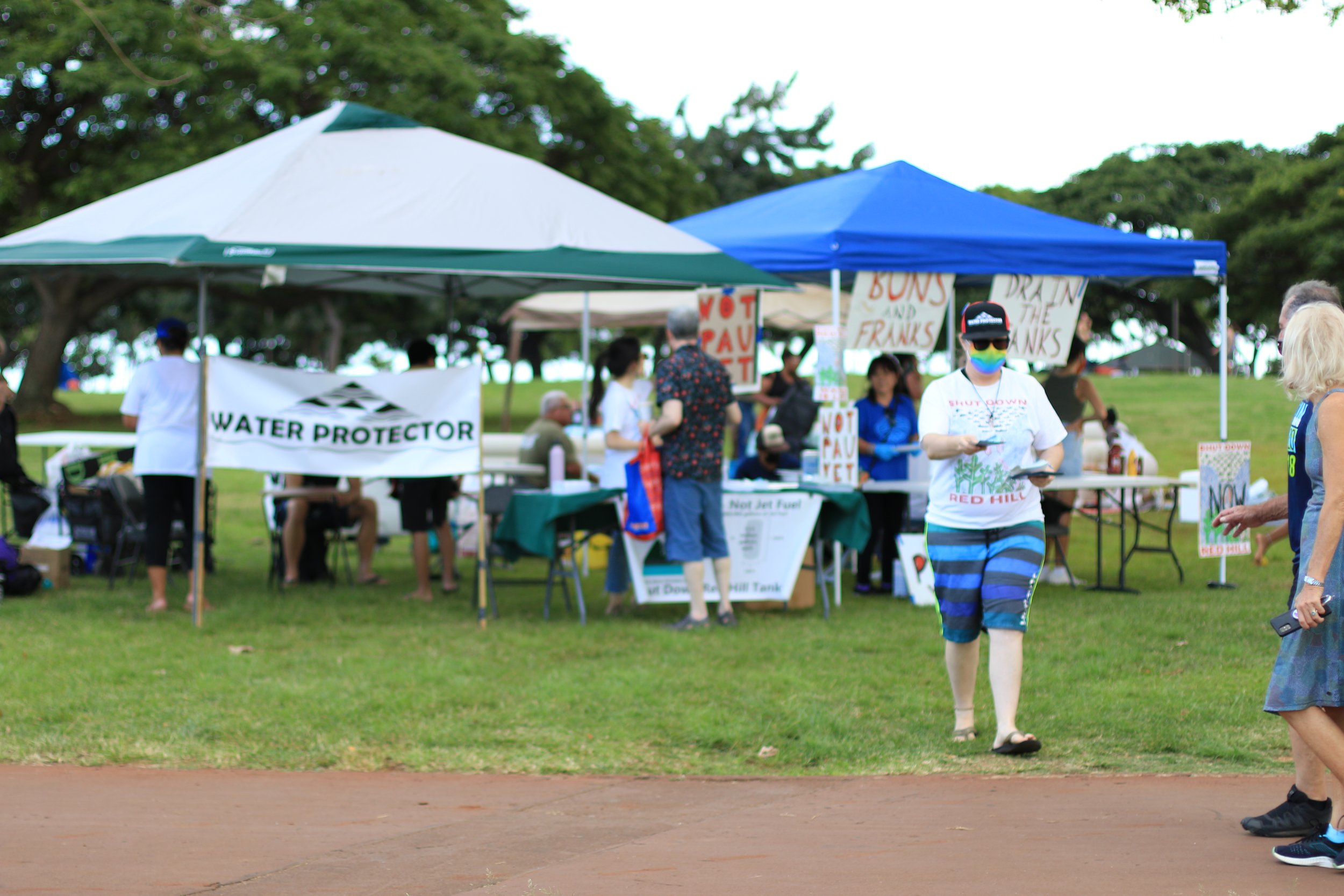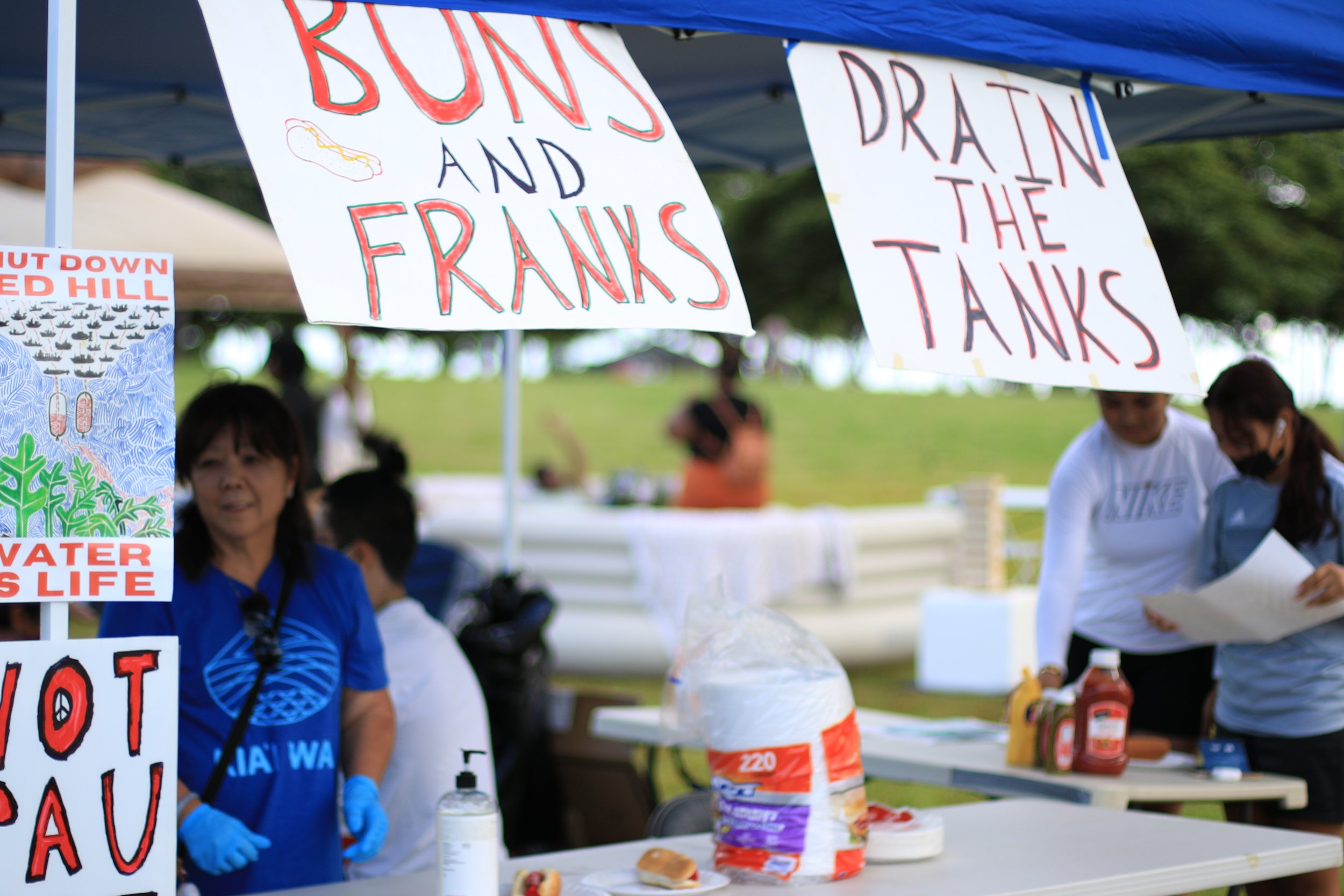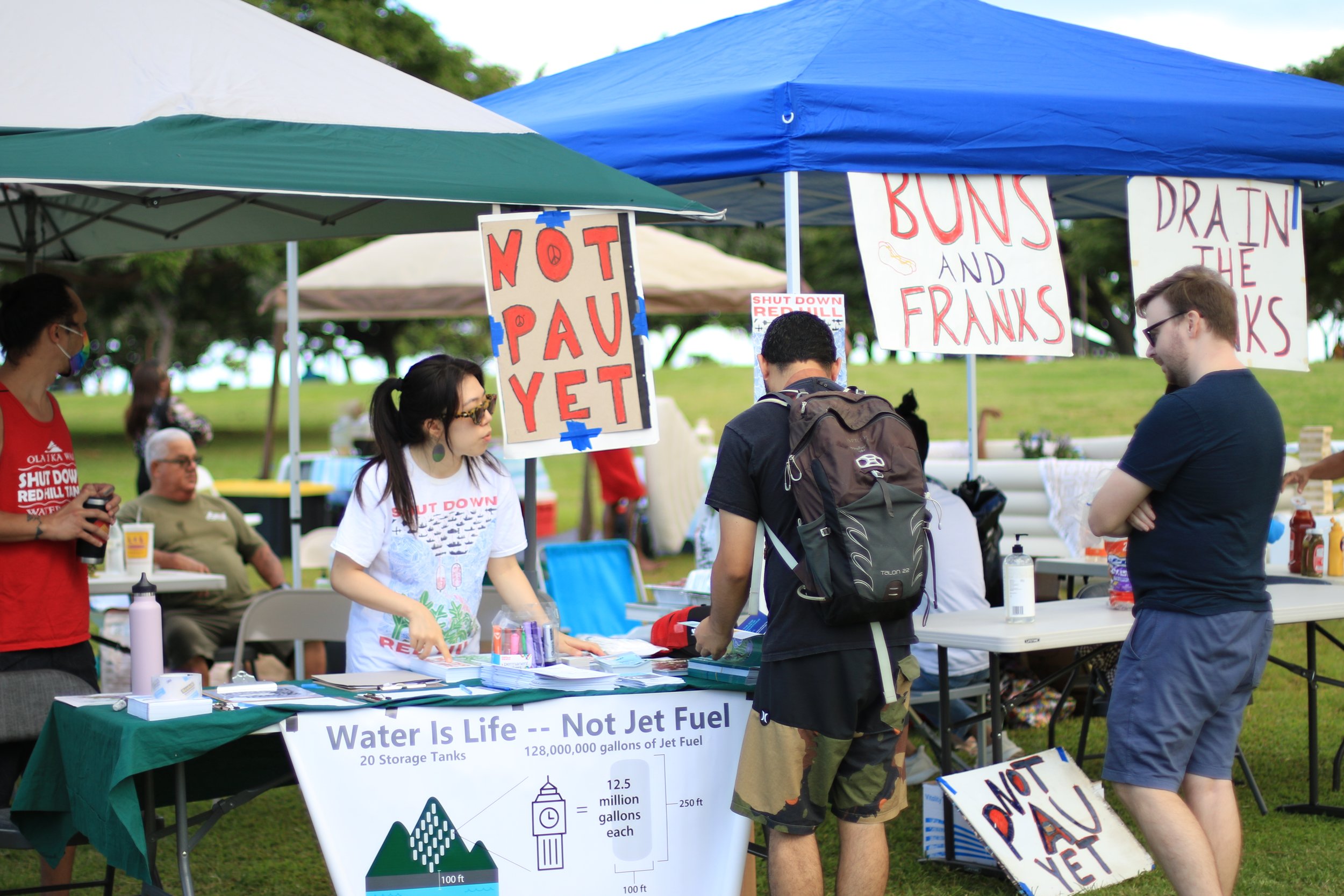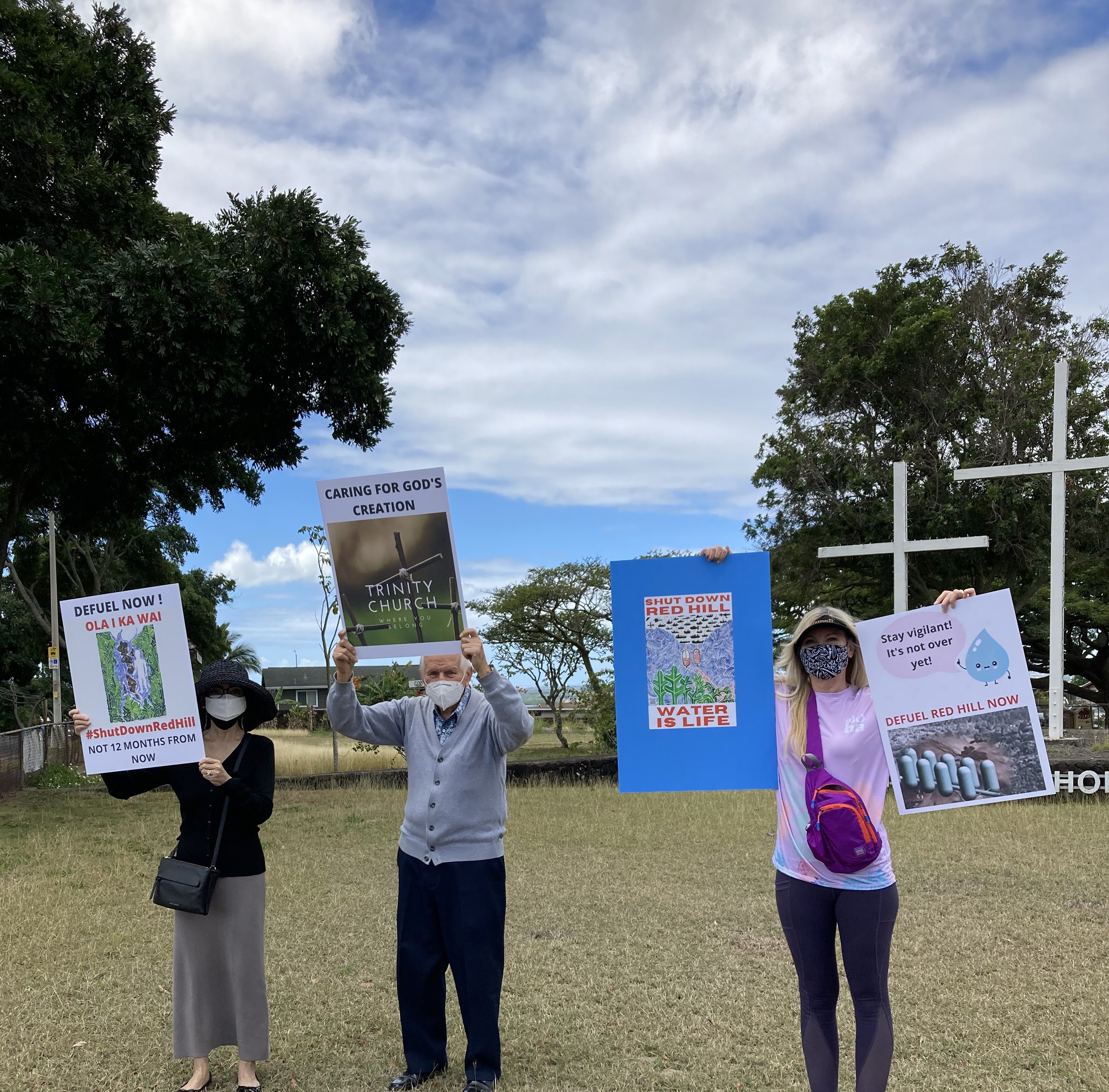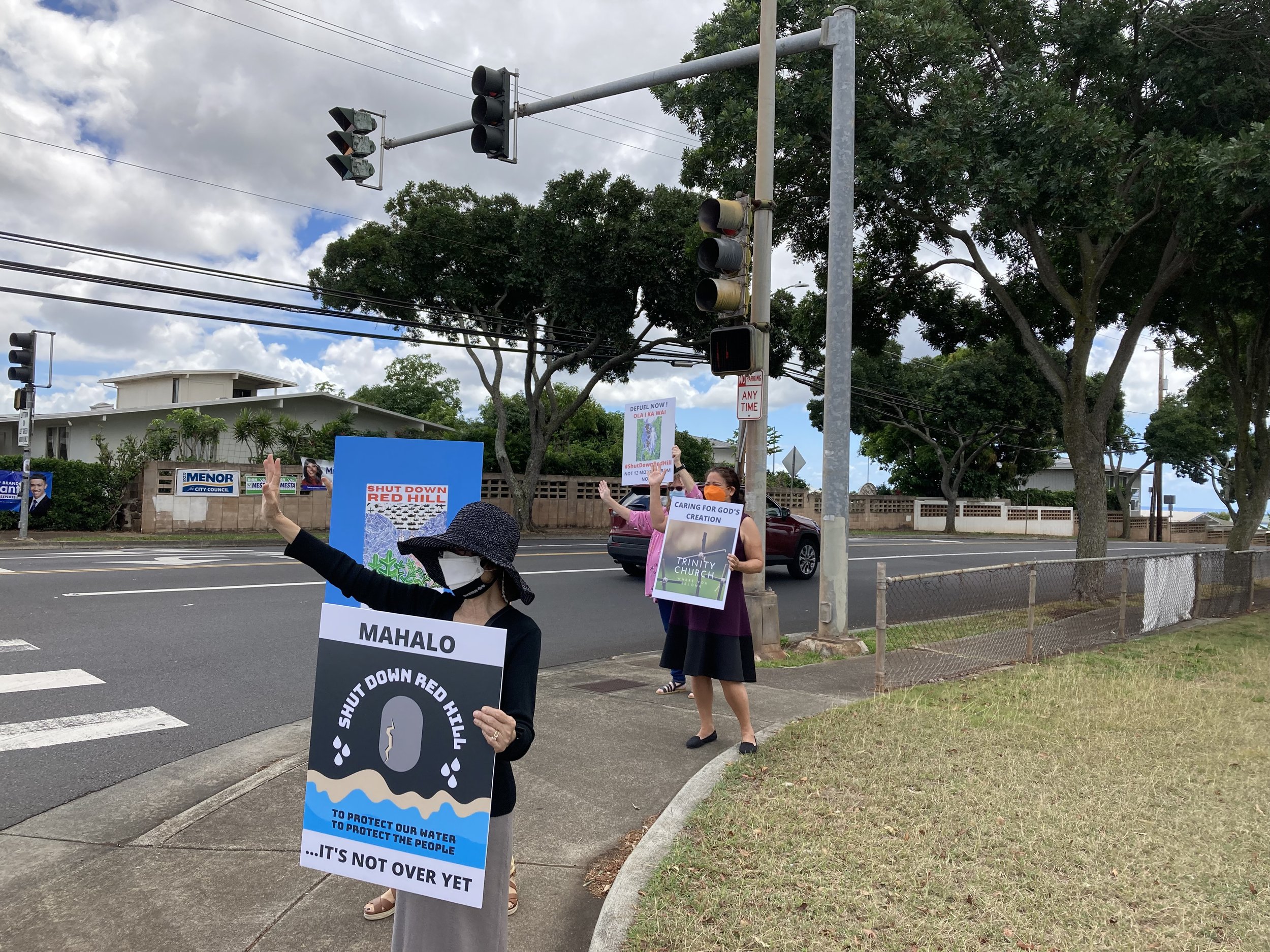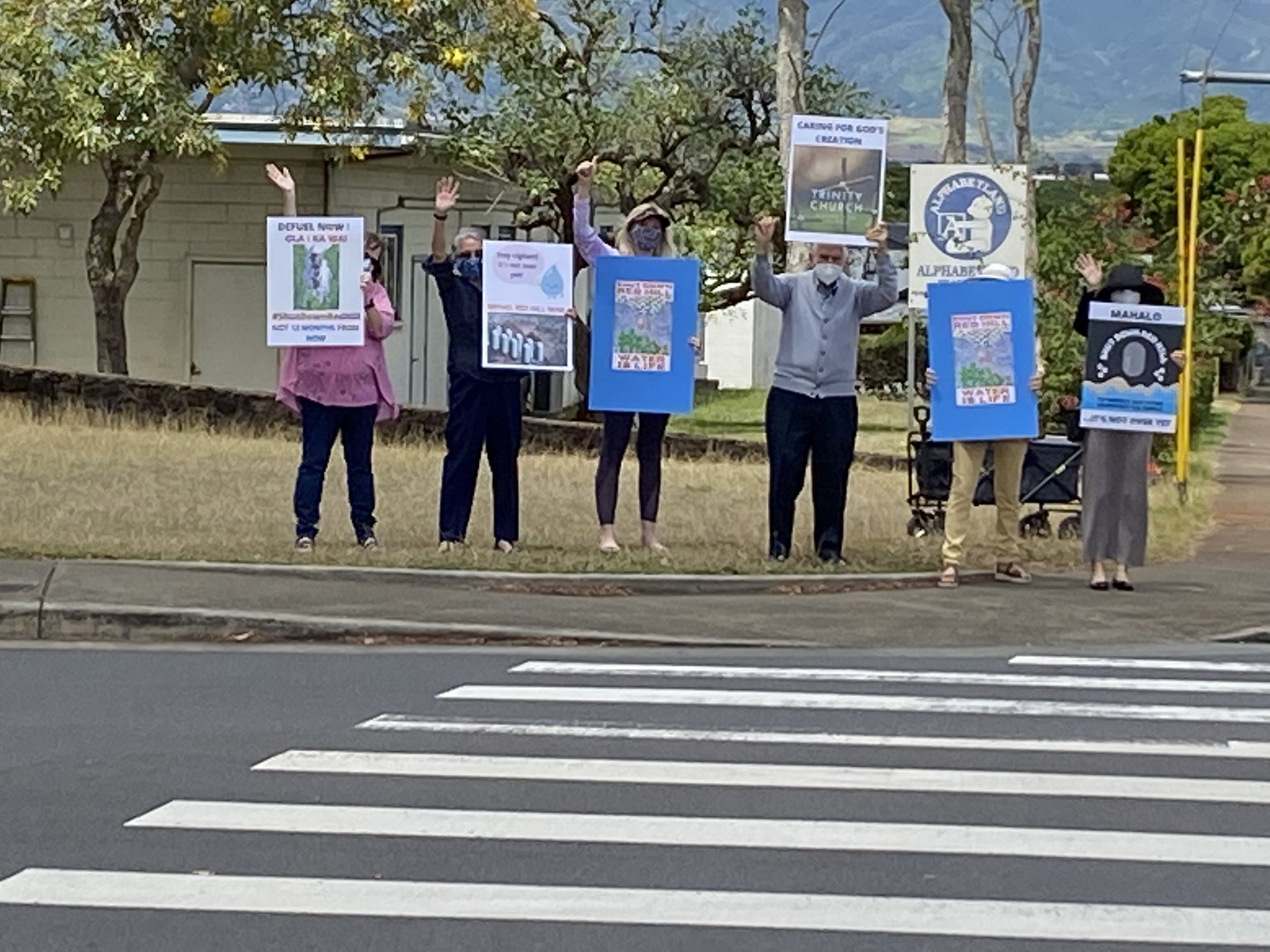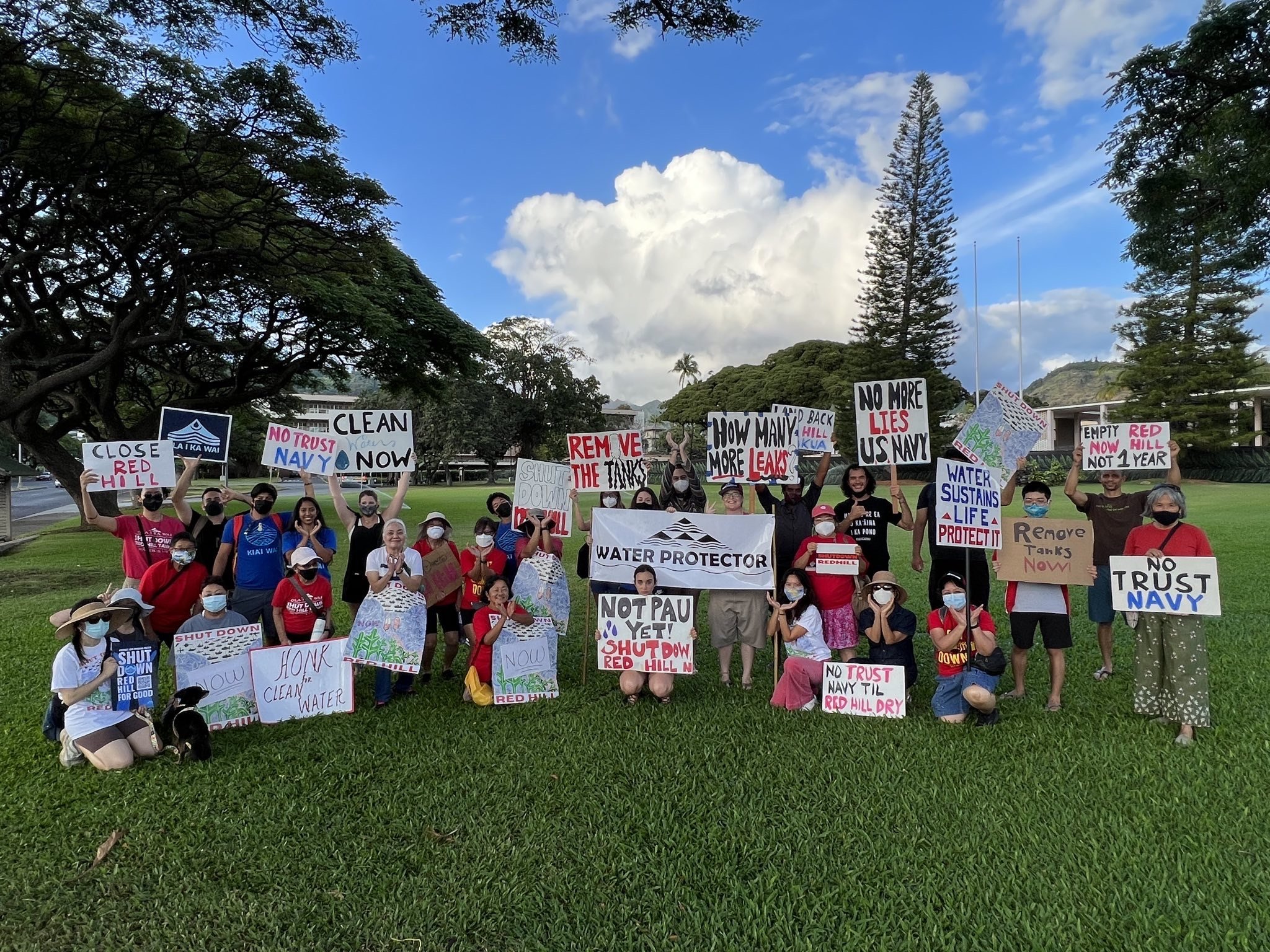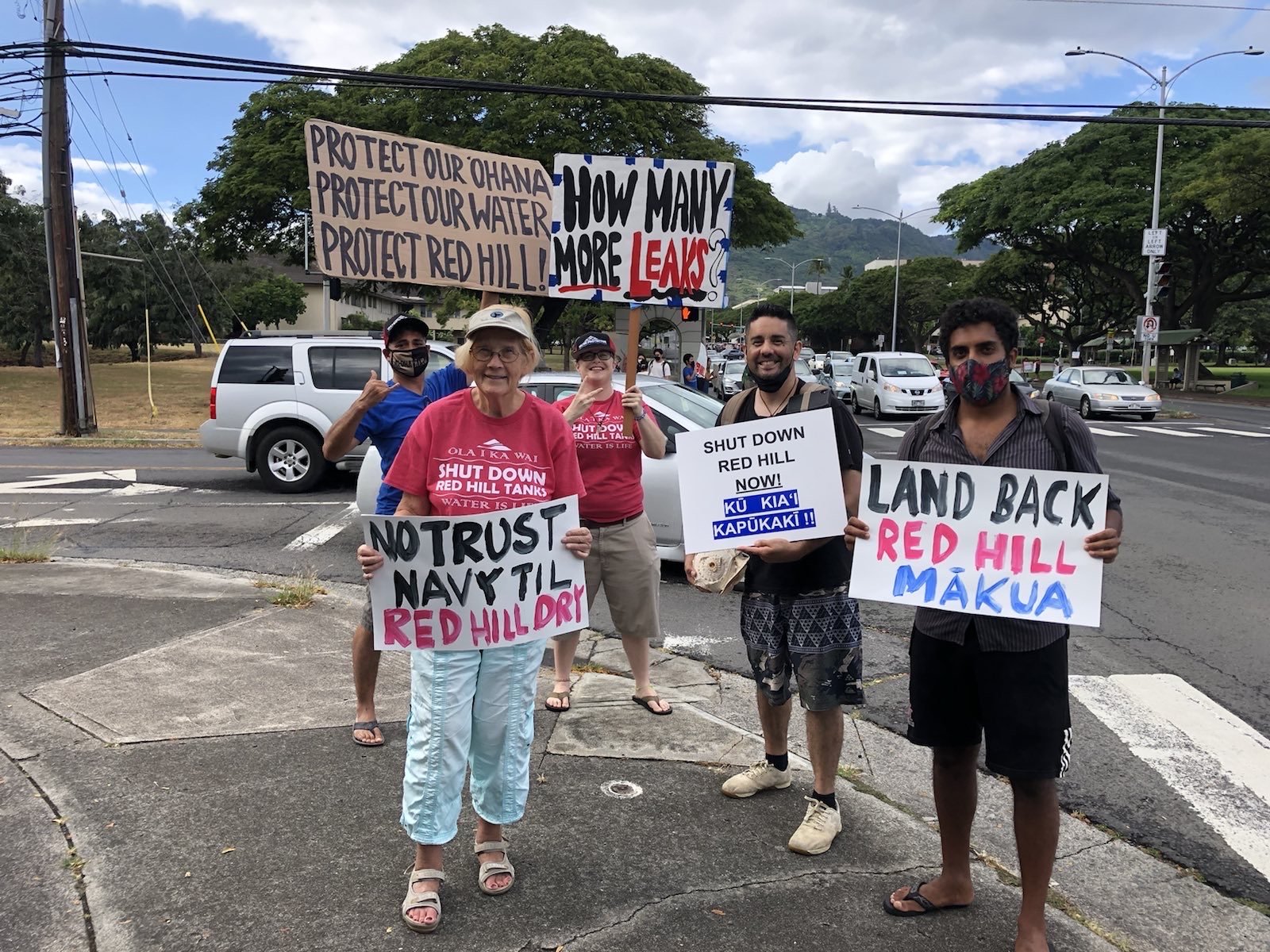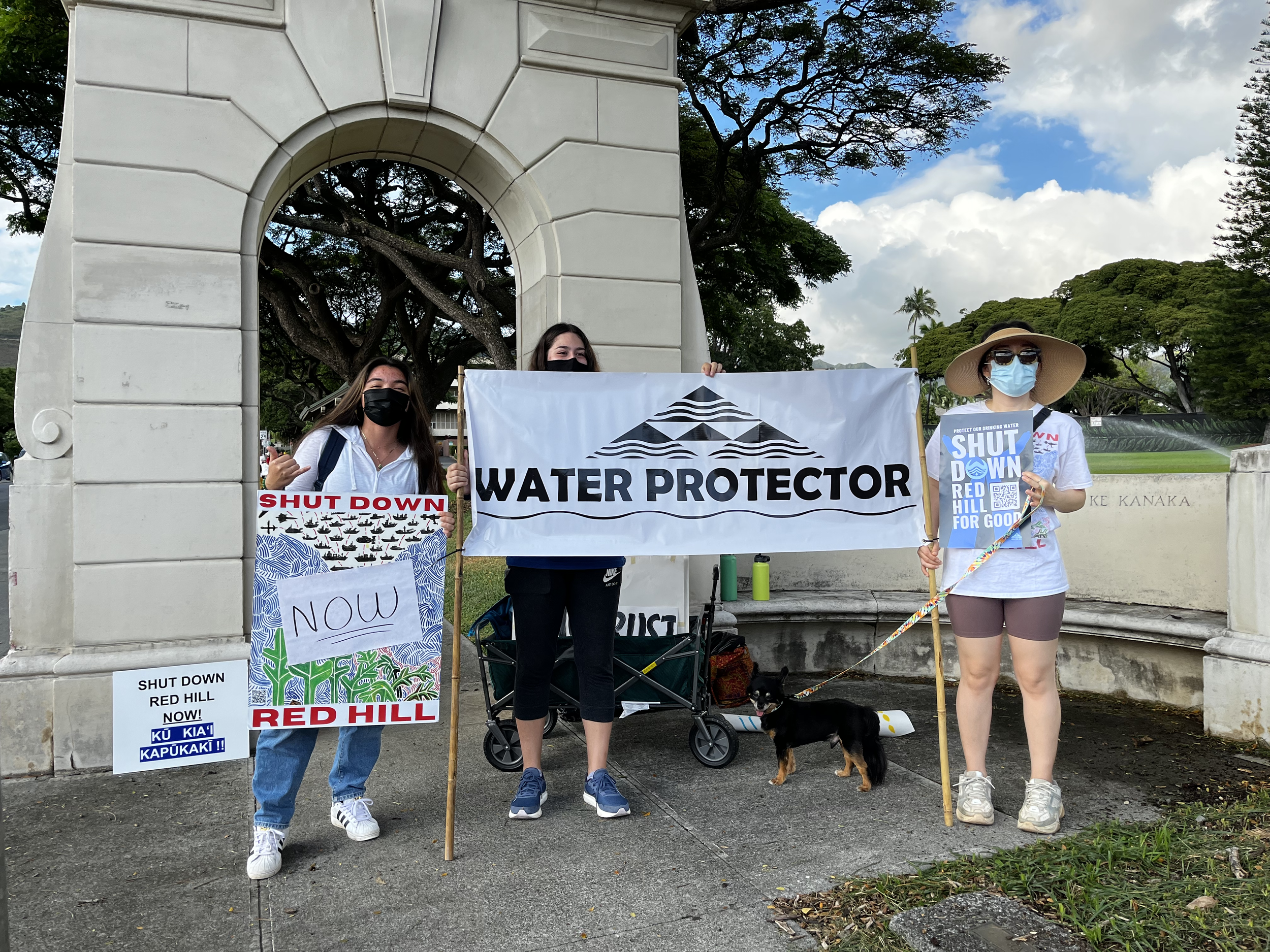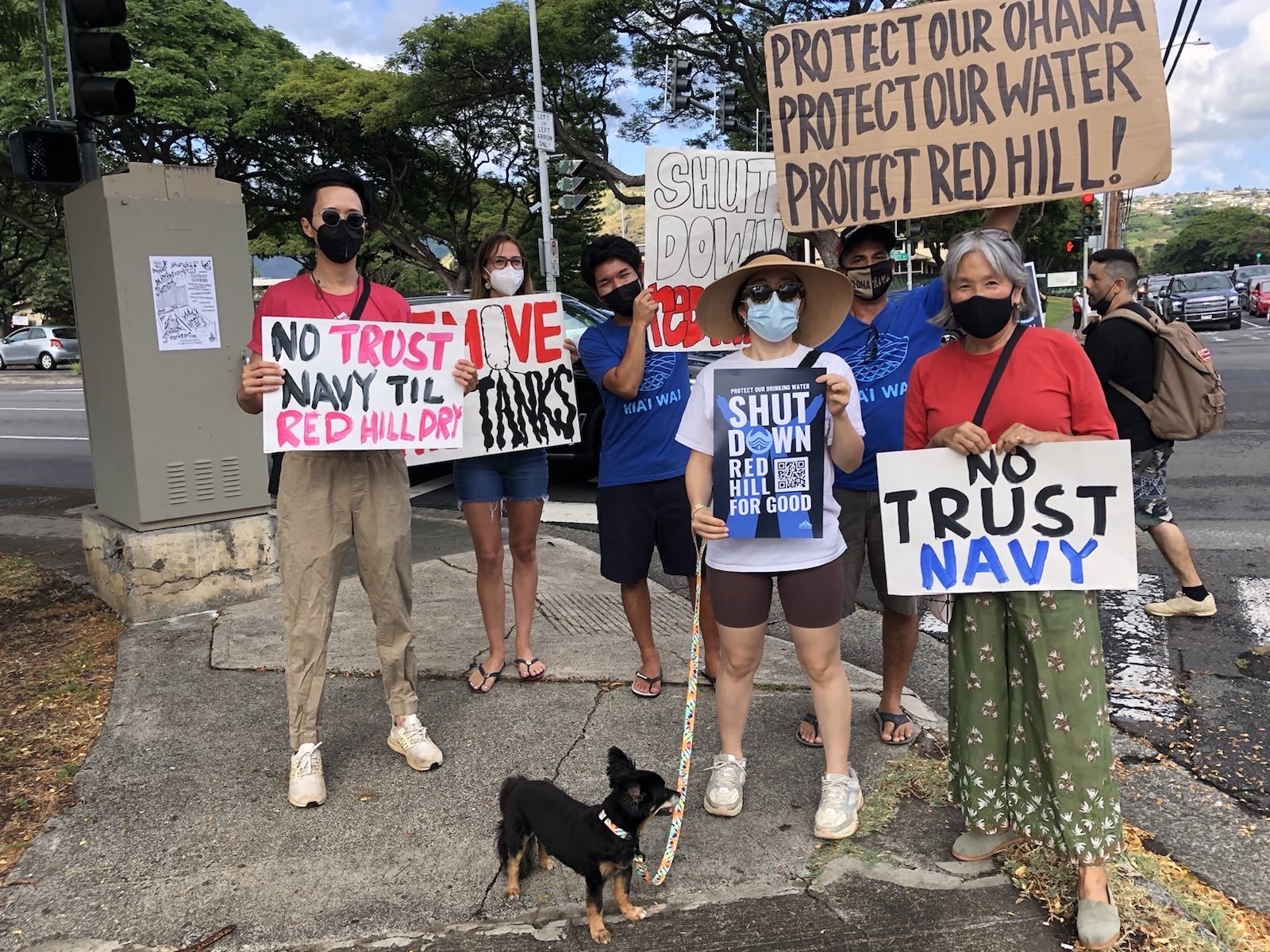Spring equinox prepares us for the next phase to #shutdownredhill
by Anna Chua and Sharde Freitas | Reading time: 5.5 minutes
“Ola i ka wai!” Water is life. This has been the common refrain, especially in light of the most recent spill at Red Hill. Wai, simply translated to mean “water,” is far from simple. Looking to the indigenous people of this land, Native Hawaiians, they sustained upwards of one million people pre-contact, and for generations. Additionally, there are other elements that we can reflect upon that further support the importance for our precious wai. For instance, words such as “kānāwai” (law), and “waiwai” (wealth), further point to the significance of water and something to be managed with great care.
As the spring equinox signals the changes of seasons, we are also moving out of the season of Lono and into the season of Kū. Kū, one of the four major Hawaiian gods, is commonly known as the god of war. Interestingly, according to David Malo, mahiʻai (farmers) and lawaiʻa (fishermen) who were greatly involved in the practice of farming and fishing were considered “kanaka waiwai nui loa,” a very wealthy person, because they produced everything. Further, mahiʻai worshiped Kūkaʻōʻō, and lawaiʻa worshiped Kūʻula. These gods both have “Kū” as part of their names. Malo goes on further to speak to the strict nature, unlike the more flexible rituals for Lono, in which rituals around Kū were conducted. We have learned of this great care in the management and protection of our wai as mahiʻai and lawaiʻa have done to sustain generations. This critical protection and management of our wai is part of traditional sustainable harvesting practices of crops, iʻa, and limu, to name a few.
Let us aspire to be a wealthy person in the sense that we are attuned to our natural environment like that of a mahiʻai or lawaiʻa because what we produce defines our wealth. Let us produce food, or other things, that feed and nourish. Let us be inspired by these changes of seasons to uphold the highest standards, our sharpest arguments, to hold those accountable for the damage done to our environment and to others, because our precious wai is worthy of such protection. The protection of our wai is sacred work warranting our best selves.
Recent Updates
March was a true test of our commitment to this sacred work. The Pentagon’s decision to shut down Red Hill did not mark the culmination of this fight, but rather, the beginning of the next phase in this struggle to protect our wai now and forever. The force with which we have risen up to take a stand against the Pentagon was what got us here, but we cannot forget the destruction that has already been inflicted upon ʻāina, wai, and our communities. We must remember the toxic trail imprinted by the Navy that it needs to be held accountable for. Our aquifer is contaminated. There is still fuel in those tanks. There is still no plan to permanently shut down the Red Hill Facility and ensure that fuel isn’t relocated to harm any other community. Families living within the Navy’s water system are still afraid of drinking their water and continue to suffer physical and mental health consequences from this disaster. In short, we are not out of harm’s way.
Action speaks louder than words. It’s been almost a month since the Secretary of Defense announced his decision to shut down Red Hill. But, the Department of Defense and local Navy command have yet to take concrete steps to effectuate their statements: the state appeal and federal lawsuit against the Department of Health emergency order have not been withdrawn, and neither has the application to attain an underground storage tank permit. The day the decision to close Red Hill was announced, the Navy requested a motion to stay the contested case hearing regarding its permit application. This legal foot-dragging was accompanied by a declaration by the Navy that it would withhold vital documents until the motion was decided.
Ensuring that we can put forth our best selves in this marathon requires stamina. In aspiring to embody the change of seasons, we are standing strong with each other and our growing list of allies in this ongoing fight while refining our demands of accountability and for the need to take care of our communities.
Below is a (working) list of demands to the Navy:
Defuel & shut down Red Hill now. Twelve-plus months is far too long to keep fuel in those tanks. The underlying rock below the tanks is already saturated with fuel, and this current crisis shows us that as long as fuel remains on those tanks, we are on the brink of an even greater catastrophe.
Withdraw the state appeal & federal lawsuit, as well as the application for a five-year permit to operate the tanks.
Clean up the current contamination and restore Kapūkakī immediately, with oversight by the community to ensure full remediation and compensation.
Compensate our schools, residents, and government agencies, including the Department of Health and the Board of Water Supply, for the costs incurred and that will continue to be incurred to address this ongoing crisis.
Ensure that alternative fuel arrangements do not threaten the water and foundation of life for our or other communities.
Publicize the full, unredacted report from the January investigation of the water contamination immediately, and provide us with updates on the 300 pipeline repairs that may or may not have been done.
With our friends at Hawaiʻi Peace and Justice, Oʻahu Water Protectors, Kaʻohewai, the Shut Down Red Hill Coalition, the Red Hill Pledge takers, and Shut Down Red Hill Mutual Aid, the organizing around the protection of our wai continues. This past month, we went out into the community to celebrate World Water Week on the corner of University Avenue and Dole Street, at the koʻa fronting Pacific Base Command Headquarters, at Moanalua Middle School for our special #olaikawai native tree giveaway, and in Ala Moana Beach Park. Mahalo nui also to the Faith Action for Community Equity Environmental Justice Task Force for organizing a signwaving outside Trinity United Methodist Church. See pictures of our recent actions below!
In this next season of Kū, join us to continue fighting for our wai:
Sign up for Red Hill action alerts here.
Keep talking to your friends, families, community associations, neighborhood boards, elected officials, and let them know this crisis and this fight is far from over
Submit a letter to the editor or op-ed here.
Tag #ShutDownRedHill on your social media and follow @oahuwaterprotectors @sierraclubhi @hawaiipeaceandjustice @kaohewai @sdrhmutualaid
In solidarity,
Sharde & Anna

